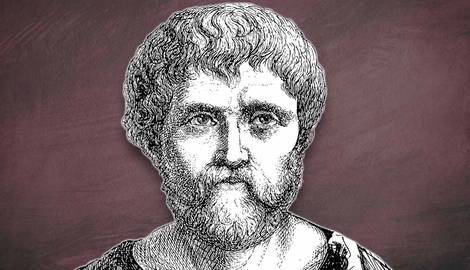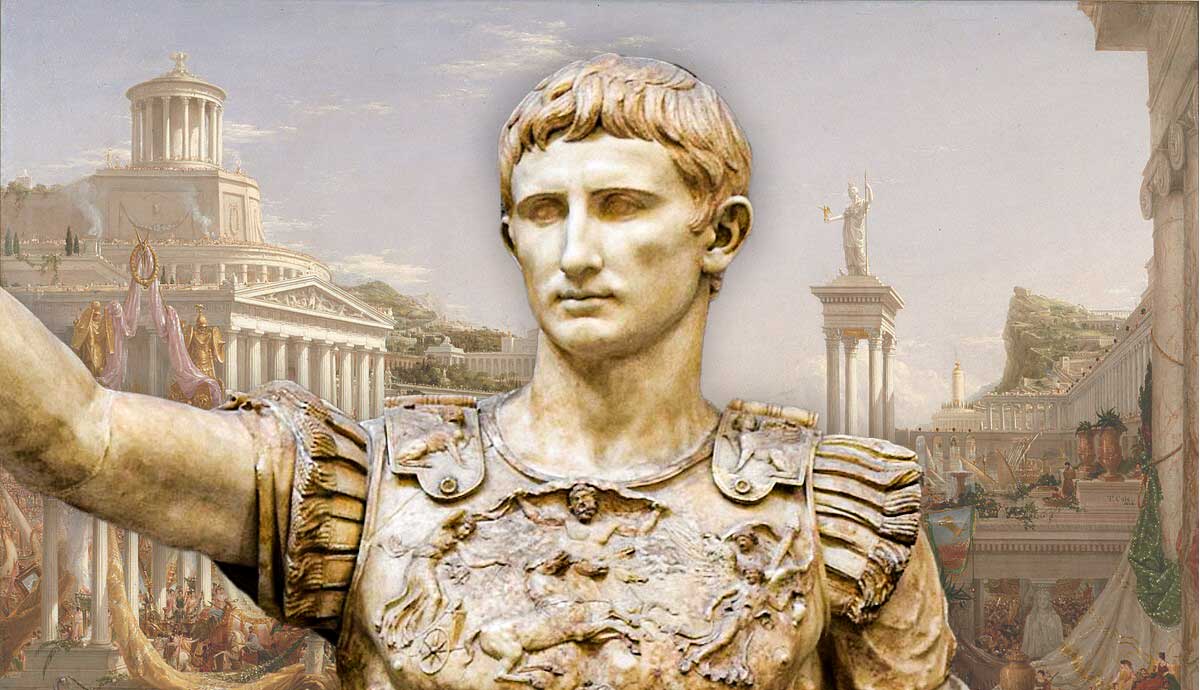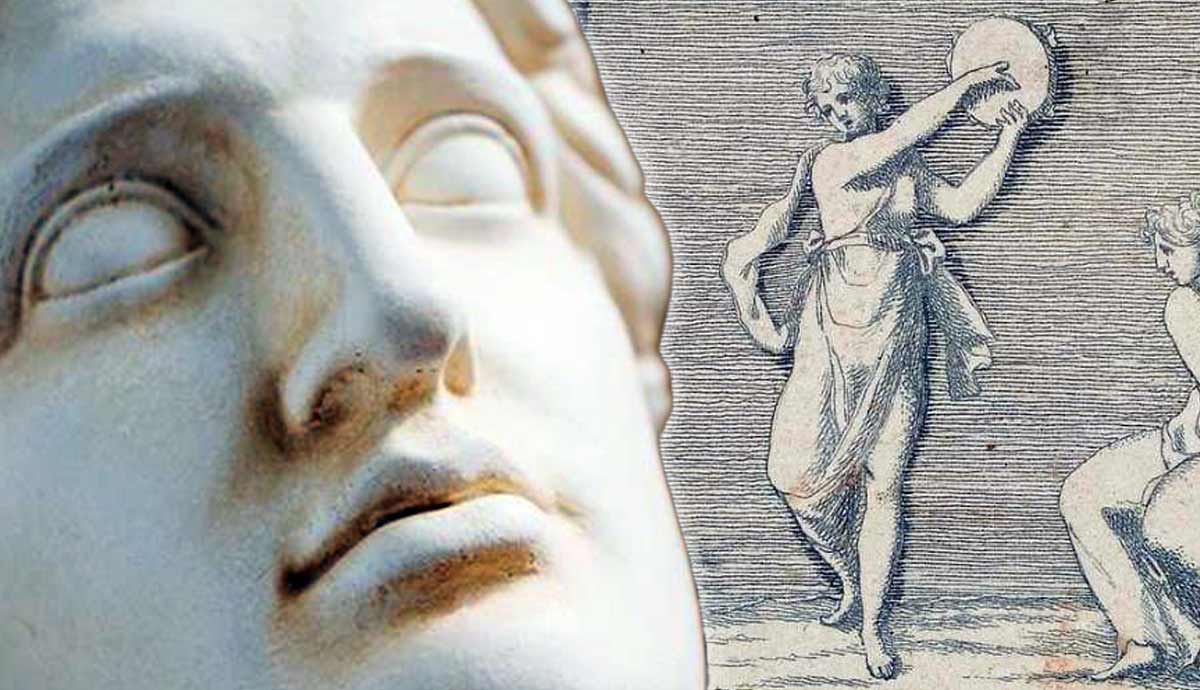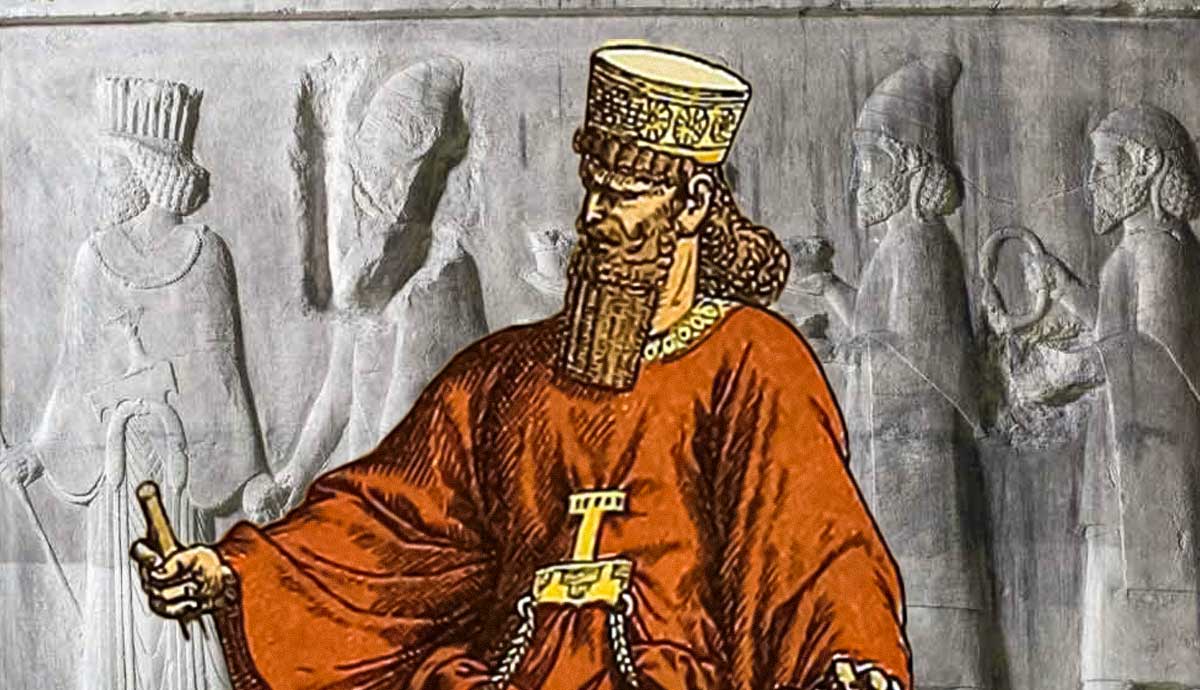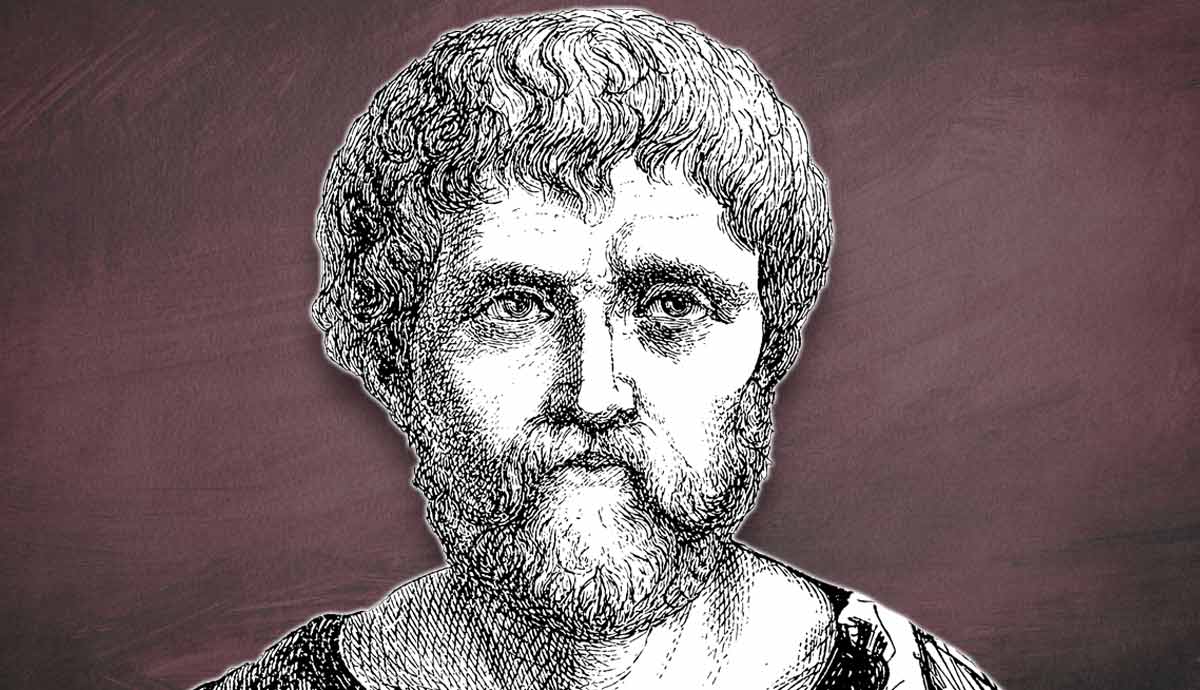
Lucius Annaeus Seneca lived at a formative period in the history of imperial Rome. As a Stoic philosopher who preached virtue and self-restraint, he also served as an advisor to the infamous emperor Nero. His writings, such as his Letters to Lucilius and On the Shortness of Life, urge moral probity and inner freedom, even as his own life and career were steeped in political compromises. Such contradictions speak to how Stoicism was reshaped more broadly within the machinery of Roman power and how philosophical ideals conflicted with the realities of imperial Rome.
Early Life & Rise to Prominence

Seneca was born into a wealthy equestrian family in Corduba, Hispania, in around 4 BCE. His father, Seneca the Elder, was a respected rhetorician whose interests in literature and public life likely inspired the younger Seneca’s early aspirations. As a boy, Seneca was sent to Rome, where he received a comprehensive education in rhetoric, grammar, and philosophy, particularly Stoicism, which was gaining influence among segments of the Roman elite, having originated much earlier in ancient Athens.
Under the guidance of teachers like Attalus the Stoic, Seneca absorbed doctrines that emphasized virtue, self-discipline, and emotional restraint. At the same time, he pursued the legal and political career that was the foundation for any Roman politician. His oratorical talent made such a strong impression in the Senate that it drew the attention, and jealousy, of the Emperor Caligula. According to Cassius Dio, Caligula considered executing Seneca but was dissuaded when advised that the talented young man was gravely ill and unlikely to survive much longer.

More danger was to follow during the reign of Claudius, who accused Seneca of adultery with the emperor’s niece, Julia Livilla. The charge was thought to have been politically motivated, and it led to Seneca’s exile to the island of Corsica in 41 CE. During his exile for the next eight years, he lived in relative obscurity.
Though embittered by exile, he continued to write, producing philosophical essays and tragic dramas that deepened his reflections on suffering, virtue, and fate. Right at the end of this period, he wrote the Apocolocyntosis, a scathing and satirical pamphlet mocking the recently deceased Claudius and his deification, revealing the bitterness he felt toward his former persecutor.
In 49 CE, his fortunes were reversed when Agrippina, the wife of Claudius, orchestrated his recall to Rome to serve as tutor to her son, the future Emperor Nero. This appointment marked Seneca’s return to political prominence and brought him into the heart of imperial power. His trajectory from provincial outsider to central figure at court laid the groundwork for the moral complexities and contradictions that would define his later career.
Nero’s Tutor

Seneca’s return from exile in 49 CE marked the beginning of his most politically significant and morally ambiguous period of his life. Appointed to the prestigious position of tutor to the young Nero, Seneca played a central role in shaping the early years of the notorious emperor’s reign when he succeeded Claudius in 54 CE.
Alongside the praetorian prefect Burrus, Seneca sought to guide Nero’s rule along a path of moderation and civic responsibility. His influence extended to speechwriting and policy advice, and as such, many of Nero’s early pronouncements reflect a voice more philosophical than imperial, grounded in restraint and clemency.
Yet the question of Seneca’s actual power and motives remains a matter of debate, as he was certainly not just a passive advisor. As a prominent senator and immensely wealthy figure, he was also implicated in the mechanisms of court politics and policy.
Quite controversially, he was attributed some blame for the Boudiccan revolt in Britain due to his heavy-handed demand for loan repayments from the native Britons. According to the historian Tacitus, this caused resentment among the local populace, which was only exacerbated by Roman conduct towards the Iceni queen Boudicca.

Nonetheless, the early years of Nero’s reign, from roughly 54 to 59 CE, were relatively stable. But after this, tensions grew between the young emperor’s predilections and his advisors’ attempts to control and restrain him. Seneca, who had advocated for Stoic virtues such as moderation and justice, increasingly found himself defending or enabling decisions that fell short of these ideals.
As early as 55 CE, Seneca is believed to have remained silent, or complicit, during Nero’s elimination of his stepbrother Britannicus, who was Claudius’s natural son. He is similarly reported to have helped script a speech for Nero after the murder of his mother, Agrippina, which the emperor had planned after becoming fed up with her overbearing influence and control.

Critics, ancient and modern, have debated the extent to which Seneca was complicit in such acts of tyranny or simply attempting to mitigate evils “from within.” Tacitus presents him as caught between his philosophy and his ambition, trapped in a role he could neither fully endorse nor abandon.
Seneca himself seemed aware of the moral cost. His writings from this period betray a man seeking ethical clarity amid political compromise. While he may have aimed to be a philosopher-kingmaker, he risked becoming something closer to a philosopher in chains. The contradictions of this period would come to haunt his later work and legacy.
Key Writings & Philosophy

Seneca’s philosophical legacy lies not in complex treatises but in meditative and practical writings that attempt to reconcile Stoic ideals with the pressures of Roman public life. His central concern was how to live well in a flawed contemporary world. For Seneca, virtus, defined as living according to reason and nature, was the highest good. He saw anger, fear, and greed as symptoms of irrationality and enslavement to fortune.
Works like On Anger, On the Shortness of Life, and the Letters to Lucilius reflect this outlook. In On Anger, he dissects the destructive power of wrath and argues for self-control as a civic and moral necessity. In On the Shortness of Life, he urges readers to value time as life’s most precious and wasted resource. The Letters, written during his final years, reveal a more introspective Seneca, advocating for ethical progress through self-examination, simplicity, and philosophical friendship.
However, Seneca’s personal wealth and entanglement in imperial politics complicated his Stoic message. As a statesman amassing fortunes while serving a volatile emperor, he attracted charges of hypocrisy. He did not ignore these accusations. Seneca repeatedly acknowledged and highlighted his imperfections, emphasizing that philosophy was not a badge of moral superiority but a tool for self-improvement.

Stoicism, in his view, was an aspirational discipline, suited precisely to those who struggled to achieve ideals. His writings, then, do not present a man who has fully mastered himself, but one who wrestles openly with contradictions between ideal and action. Rather than diminishing his credibility, this self-aware tension gives his philosophy its enduring power. Seneca offers not the portrait of a perfect sage, but the voice of a deeply reflective man trying to live wisely in compromised circumstances.
As such, another unique aspect of his works is their divergence from the more metaphysical philosophizing of earlier, mostly Greek, Stoics. Compared to them, his philosophy takes a far more pragmatic, real-life approach, exploring how Stoic ideals work in practice. Indeed, the friction between the two embodies Seneca’s life in many ways.
Additionally, his literary oeuvre also contained many tragedies, all of which still survive, in a rare example of ancient preservation. All of these tragedies were adaptations of earlier Greek myths and tragedies, especially those by Euripides, Sophocles, and Aeschylus. However, whilst their preservation certainly attests to their popularity, it is Seneca’s philosophy and unique historical fate that he is mostly remembered for.
Fall From Grace & Final Years

As Nero’s reign grew increasingly erratic and violent, Seneca began to retreat from public life. Although once the emperor’s trusted advisor, Seneca found his influence waning by the early 60s CE. He asked several times to retire from court life, citing ill health and a desire for philosophical contemplation. Nero eventually and reluctantly permitted this, though likely with suspicion rather than goodwill.
Unfortunately, Seneca’s withdrawal did not bring him peace. He became a target of growing distrust, both from Nero and those within the court who viewed his past power with resentment. His enormous wealth, amassed during his years in power, also drew criticism. In contrast to his Stoic writings, his material fortune gave rise to charges of hypocrisy.
In 65 CE, Seneca was implicated, likely falsely, in the Pisonian conspiracy, a plot to assassinate Nero and restore senatorial authority. Though there was little concrete evidence against him, Nero ordered Seneca to take his own life. The philosopher complied with grim resolve, opening his veins in the tradition of noble Roman suicide.

Accounts of his death, especially by Tacitus, emphasize its philosophical dignity. Seneca reportedly met death with calm and composure, speaking to friends and consoling them even as he bled. Though physically agonizing and prolonged, his end has been portrayed as a Stoic death: rational, courageous, and controlled.
Yet the drama of his suicide has also prompted debate. Was this a final act of philosophical integrity or a tragic performance shaped by Roman ideals of virtue? Either way, Seneca’s end sealed his complex legacy as both philosopher and political figure, caught between conviction and compromise.
Legacy & Influence

It should be no surprise to learn that Seneca’s legacy is marked by tension between his philosophical ideals and political entanglements. However, this very contradiction became a source of fascination and study.
In the early Christian era, his ethical writings found favor for their emphasis on virtue, patience, and inner resilience. As such, some Church Fathers even imagined him as a proto-Christian, despite his pagan context and beliefs.
His works enjoyed a further revival during the Renaissance, when humanists admired his literary style and moral introspection. Montaigne, Erasmus, and Lipsius drew on his reflections to shape early modern ideas of virtue, civic responsibility, and selfhood. In his tragedies, Seneca also left a stylistic imprint on European drama, especially in the works of Shakespeare and Racine.

Modern scholars remain more divided. Some see Seneca as a sincere thinker struggling within a corrupt system. Others view him as a compromised figure, more opportunist than sage. His life continues to raise questions about the limits of ethical action in political contexts, and whether philosophy can meaningfully guide power.
Yet his enduring appeal lies in that very struggle. Unlike the untouchable ideal of the Stoic sage, Seneca offers a model of ethical striving shaped by imperfection. As alluded to above, his contradictory figure has also provided an insightful case study to modern historians, especially those who aim to study the ethics of imperial power. To more general observers, his life still speaks to the issues of navigating a world of competing demands and moral uncertainty.
